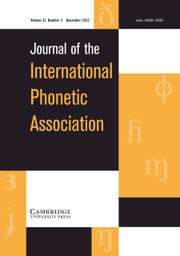Sandro Vasilyevich Kodzasov, Professor at M. V. Lomonosov Moscow State University, died on 25 October 2014 in Karlsruhe, Germany, after a serious illness, at the age of 76.
Sandro Kodzasov was born in 1938 in Moscow. He graduated from Moscow State University in 1961 and had worked there since 1964 in research positions, becoming a Professor in 2011. For many years he had also worked at the Institute of Russian Language of the Russian Academy of Sciences.
Over the years Sandro Kodzasov taught a variety of courses on phonetics, phonology, and specifically on prosody, and thus formed and influenced several generations of Russian linguists. He was instrumental in familiarizing both students and established researchers with the state-of-the-art theories and trends from the English-speaking world. Together with his longtime colleague Olga Krivnova, he authored the reference volume Sovremennaja amerikanskaja fonologija [Modern American phonology] (Moscow State University, 1981), as well as the most fundamental and extensive phonetic textbook currently available in Russian Obščaja fonetika [General phonetics] (Russian State University for the Humanities, 2001).
A major part of his activities was linguistic fieldwork in minority languages of the USSR, a life-long enterprise he undertook with his closest friend Aleksandr Kibrik (1939–2012). Field trips organized by Kibrik and Kodzasov since 1967 were the forge of a new collective fieldwork method which enabled productivity to be boosted while keeping to highest quality standards in the depth, consistency and accuracy of linguistic description. Kodzasov was responsible for the phonological part of all the work. A series of field trips in the Caucasus, Siberia and the Far East resulted in several monographs, including grammars of Archi, Khinalug, Tabasaran, Godoberi, Tsakhur, Bagwalal, and Alutor. The outstanding fieldwork-based monograph Sopostavitel’noe izučenie dagestanskix jazykov [Comparative studies in Daghestanian languages] (Moscow State University, 1988, 1990) demanded 17 years of work, and a unified account of phonological systems of 22 languages and several language varieties. Sandro Kodzasov became a unique expert in the sounds of the languages of Daghestan, abundant with pharyngo-laryngeal features, as well as laterals (such as Archi, with one of the largest non-click consonantal inventories, or a dialect of Agul, contrasting pharyngeal and epiglottal fricatives).
Another area of Kodzasov's interests was prosody, and it was the prosody of his mother tongue, Russian, which he found ever fascinating, and which preoccupied him until the last days of his life. His insights were often bold enough to remain unappreciated by many ‘mainstream’ colleagues. His findings in the domains of phrasal prosody (Combinatorial Model) and lexically conditioned fine prosodic details have enough potential to instigate a full-scale reassessment of our current knowledge of Russian prosody.
Sandro Kodzasov was a person of great modesty, yet of many wonderful talents – a fine poet and singer, a good dancer and sportsman, and an unfailing friend. He will be deeply missed by his family, his friends, his colleagues and his students throughout the world.


